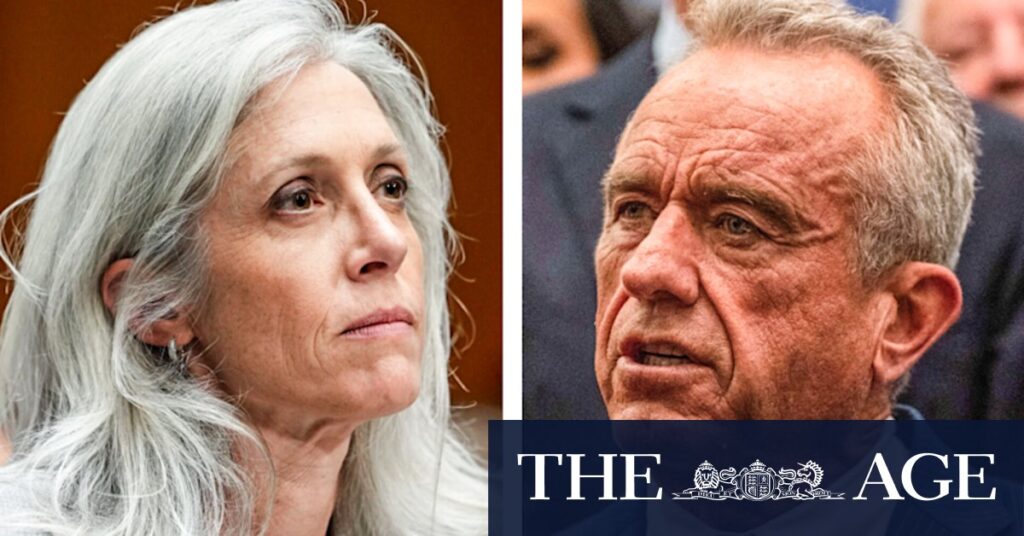
In a dramatic turn of events, the Trump administration has dismissed Susan Monarez, the head of the United States Centers for Disease Control and Prevention (CDC), mere weeks into her tenure. This decision comes amidst escalating tensions with Health Secretary Robert F. Kennedy Jr over vaccine policy, leading to a series of resignations among senior leaders.
The removal of Monarez follows a heated confrontation on Monday, where she reportedly challenged Kennedy’s controversial stance on vaccines. According to a source familiar with the situation, who requested anonymity, Monarez’s opposition to Kennedy’s views was a significant factor in her dismissal.
Monarez had recently testified before a Senate committee in June after being nominated by the Trump administration to lead the CDC. Her sudden departure raises questions about the stability and direction of the nation’s top public health agency.
Background and Context
The CDC has long been regarded as a cornerstone of public health in the United States, playing a crucial role in disease prevention and control. However, its leadership has been under scrutiny during the current administration, particularly regarding its handling of vaccine policies.
Robert F. Kennedy Jr, known for his vocal skepticism of vaccines, has been a polarizing figure in public health circles. His influence over the Health and Human Services Department has been a point of contention, with critics arguing that his views undermine scientific consensus.
“Monarez is not aligned with the President’s agenda of Making America Healthy Again,” said White House spokesperson Kush Desai in a statement released Wednesday night.
Implications of the Leadership Change
The abrupt leadership change at the CDC has sparked concerns among public health experts and lawmakers. Many fear that the agency’s ability to respond effectively to health crises could be compromised. The departure of Monarez, coupled with the resignations of other senior leaders, leaves a significant gap in experienced leadership at a critical time.
Dr. Anthony Fauci, a prominent figure in the US public health landscape, expressed his concerns in an interview, stating, “The CDC’s role is more important than ever, and consistent leadership is crucial to maintaining public trust and ensuring effective health policy.”
Historical Parallels and Expert Opinions
The turmoil within the CDC is reminiscent of past challenges faced by public health agencies. Historically, leadership changes during health crises have led to disruptions in policy implementation and public confidence. The current situation draws parallels to previous instances where political interference has affected scientific decision-making.
Dr. Sarah Collins, a public health policy expert, noted, “The CDC has weathered many storms, but the current environment poses unique challenges. Balancing political agendas with scientific integrity is a delicate task that requires experienced leadership.”
By the Numbers: A recent survey indicated that 70% of Americans trust the CDC’s guidance on vaccines, highlighting the importance of maintaining the agency’s credibility.
Looking Ahead
As the CDC navigates this period of uncertainty, the focus will likely shift to appointing a new director who can bridge the gap between political directives and scientific evidence. The agency’s ability to maintain its reputation and effectiveness will depend on its leadership’s capacity to manage these complex dynamics.
Meanwhile, the public and health professionals alike will be watching closely to see how the CDC adapts to these changes and whether it can continue to fulfill its mission of protecting public health.
The coming weeks will be critical in determining the future trajectory of the CDC and its role in shaping US health policy. As the situation unfolds, stakeholders across the spectrum will be assessing the implications of these developments on the nation’s health landscape.






